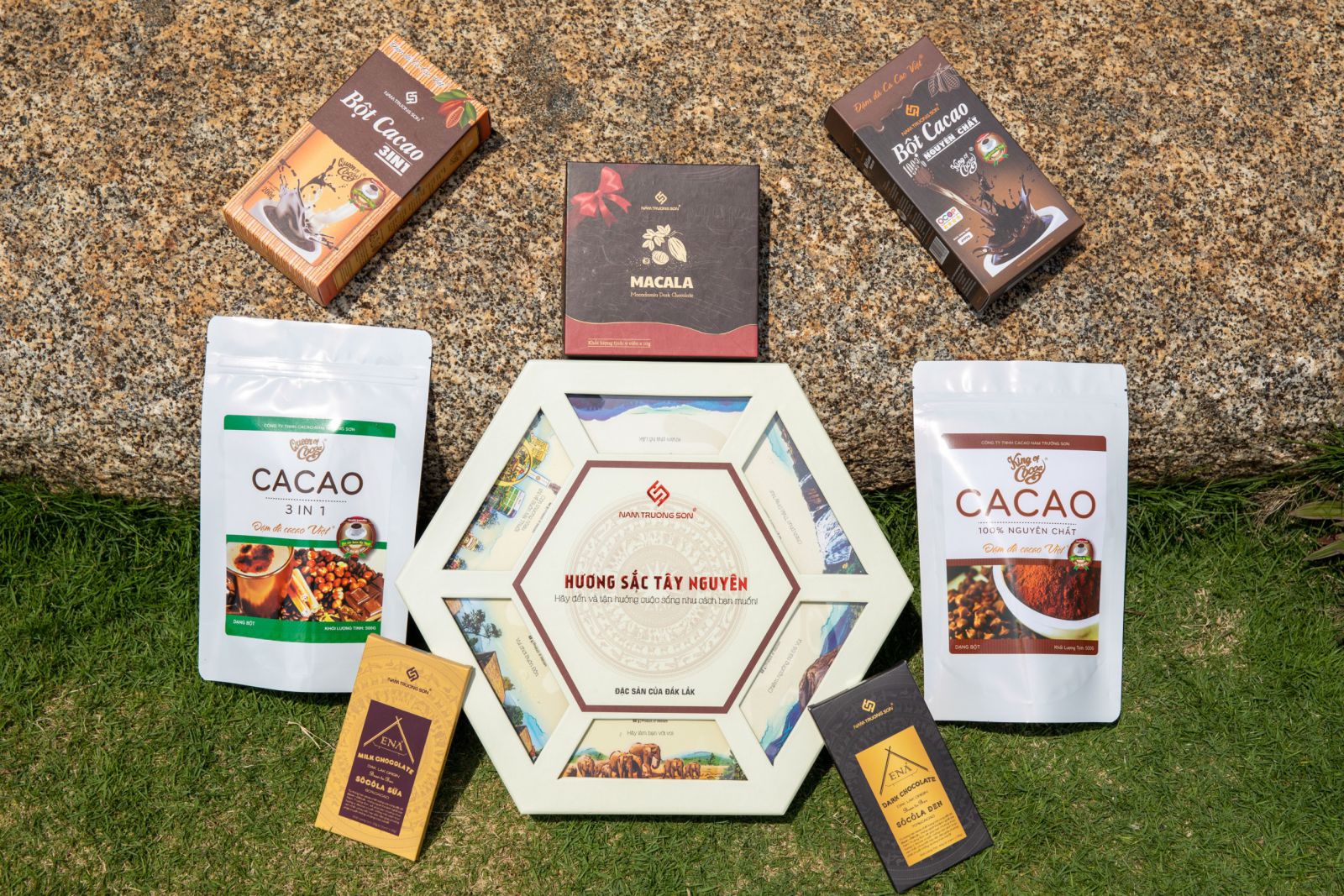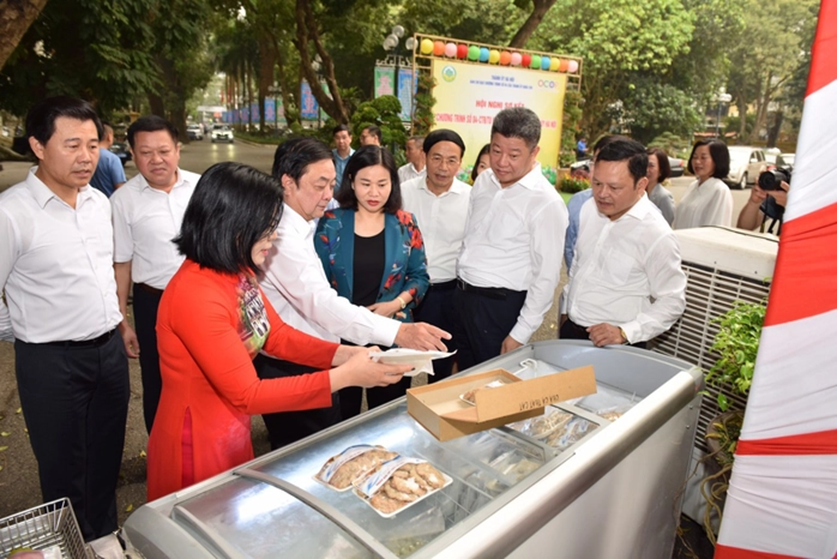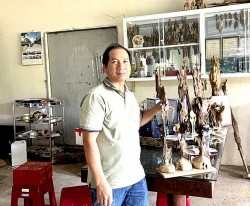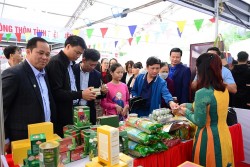OCOP Viet Nam Period 2021-2025: Ogrientations
09:53 | 18/08/2021
OVN - After 3 years of implementation, the National Program One Commune One Product - OCOP has established itself as an important policy, has a wide reach, and has been implemented synchronously and effectively, mobilizing the entire system's participation. With 4,957 OCOP products recognized with 3 stars or more by more than 2,711 participants, the political system, at all levels and branches, is becoming a priority solution in rural economic development, associated with new rural construction in all localities across the country...
Promoting the achieved achievements, the period 2021-2025 with the upcoming project will create new breakthroughs, making an important contribution to the development of agriculture - rural areas in general and the construction of new countryside in particular.
To clarify the orientation and implementation plan of the program in the new period, the OCOP Vietnam reporter had an interview with Mr. Nguyen Minh Tien - Chief of Office, Central New Rural Coordination Office.
Hello Mr. Nguyen Minh Tien
Reporter: Can you summarize the results of the One Commune One Product - OCOP program for the period 2018-2020? How do you rate the implementation progress in the last period?
Mr. Nguyen Minh Tien: Building rural areas is associated with the ultimate goal of improving the material and spiritual life of people in countryside. Therefore, rural economic development is a key task of the New countryside, also in association with the national socio-economic development strategy for the period 2011-2020. On that basis, the Prime Minister issued Decision No. 490/QD-TTg dated May 7, 2021 of approving the One Commune One Product Program for the 2018-2020 period (hereinafter the OCOP Program). This is a program of economic development in rural areas, focusing on promoting internal resources (products, creative intelligence, skills, traditional culture, etc.) income of rural people, contributing to building a sustainable new countryside.
After 3 years of implementation, the Program has become a key policy, has a strong spread, is deployed synchronously and widely, mobilizing the participation of the whole political system, all levels and sectors…becoming a priority solution in rural economic development, associated with new rural construction in all localities across the country.
Up to now, the whole country has 61/63 provinces and cities organizing product evaluation and classification, 4,957 OCOP products have been recognized with 3 stars or more, of which 62.3% are 3-star products, 35.9% 4-star products and 1.3% 5-star potential products and 20 OCOP 5 products (which have been evaluated, classified and recognized by the Ministry of Agriculture and Rural Development in 2020). More than 2,711 participants, of which 37.6% are cooperatives, 27.7% are enterprises, 32% are production establishments, the rest are cooperative groups.
In addition to product results, the OCOP Program has had positive impacts on economic development in rural areas, namely:
- The OCOP program has an overall approach to arouse the potential of land, products, comparative advantages, especially regional cultural values to form multi-valued OCOP products, suitable for the increasing consumer demand of the market (besides food, nutrition, etc., there are aspects of culture, responsibility to the community, living environment). The program focuses on promoting the integrated multi-values of the agricultural sector (not only economic, but also social and environmental) under the policy of shifting from agricultural production to agricultural economy, shifting from supply (productivity, output) luxury demand (multiple value, product quality and sustainability). 393 OCOP value chains have been formed that operate effectively with the active role of cooperatives and businesses, many OCOP products effectively exploit the local raw material area, associated with geographical indications, such as: Shan Tuyet Hoang Su Phi of Ha Giang province; Tan Cuong tea of Thai Nguyen province; coffee in Son La province, rice in Soc Trang province and AnGiang province….
- The OCOP program has aroused the spirit of OCOP subjects in many aspects, specifically: (1) mindset about economic development to approach the market, focusing on the quality factor; standards/regulations, intellectual property, food safety as prescribed by law; developing products in terms of design and packaging associated with convenience, according to market requirements;... (2) enhancing the role of the subject with the community such as: creating jobs; protect and promote cultural values and local specialties; protecting the ecological environment and forming raw material areas…; (3) step by step forming OCOP products associated with multi-valued development goals: economy, society, culture, environment, etc.
- OCOP products meet food safety and quality standards and regulations; with perse and environmentally friendly designs and packaging, in accordance with the requirements of the market. After being recognized, OCOP products have added value, contributing to helping subjects increase production scale and revenue. A number of businesses and large supermarket groups have ordered and prioritized OCOP products to put into the distribution system. 354 entities have been connected and sold stable OCOP products on supermarket systems. The results of the evaluation of localities show that: 60.7% of OCOP subjects with 3 stars or more have an average revenue increase of 17.6%/year, the selling price of products after being officially recognized as OCOP average increase of 12.2%. In particular, the products that are requested to be assessed and ranked at the national level by the Central Government have all grown in revenue by 20-40%...
- The program promotes the direction of livelihood development in areas with special difficulties and disadvantaged groups (ethnic minorities, women), contributing to the implementation of the policy of "leaving no one behind".” (the percentage of OCOP subjects who are female accounts for 39%, higher than the percentage of women holding executive roles in enterprises in Vietnam (25%), especially in mountainous areas such as: North Central Coast with 50, 6%, the Central Highlands is 45.2% and the Northern mountainous region is 43.4%. The percentage of subjects who are ethnic minorities in disadvantaged areas and mountainous areas accounts for 17.1%, especially in localities, up to 37.3% in the northern mountainous area.
In general, the OCOP Program has received the attention and direction of the Central Government, local leaders, the participation of the whole political system from the central to local levels, many good models in innovative ways, effective implementation by localities, generating interest, response and strongly spreading to enterprises, cooperatives and production establishments in rural areas, making an important contribution to raising income, rural economic development in the recent period.
Reporter: After more than 3 years, what experiences and problems have been drawn for the next period, sir?
Mr. Nguyen Minh Tien: Besides the positive results mentioned above, the OCOP Program still has shortcomings and difficulties in the implementation process, specifically:
- The OCOP program is a new program, related to many fields, especially the requirement to arouse the potential and advantages of localities for rural economic development. Therefore, in the early stages of implementation, some localities are still confused in how to do it, identify advantages, potentials and production subjects, only focus on perfecting existing products, and have not yet paid attention to development. develop new products associated with raw material areas, especially traditional craft villages;
- The system of policies and mechanisms to support product developers is inconsistent and ineffective in coordinating support activities and resources, leading to confusion and difficulties for localities in the process of implementation products. Resources to implement the Program are limited, mainly integrated, while a number of support mechanisms have not been concretized, and have not focused on the development of value chains, raw material areas and facilities - processing processes. variables, ... leading to difficulties in the implementation process in some localities;
- The participation of the subjects in the OCOP Program has not really proactive, some contents of implementing the OCOP cycle of many actors are still heavily formal, lacking in connection with activities to improve the subject's capacity in production, product development and market expansion. school. Subjects have not paid due attention and lack of information on intellectual property, geographical indications, certification marks, etc. Innovation and creativity in product development, although having results, are still limited compared to with potential (the proportion of new products accounts for nearly 8% of the total number of recognized OCOP products);
- Trade promotion activities, although interested in implementing by many localities, are still fragmented, lacking in synchronization, and have not yet formed a trade promotion and advertising system, especially connected e-commerce. specializes in creating images, identifying OCOP products and changing consumers' perceptions… especially in the context of the impact of the covid 19 pandemic.
These are very important limitations and obstacles, serving as a basis for the Ministry of Agriculture and Rural Development to determine orientations, goals and solutions to submit to the Prime Minister for approval of the OCOP Program for the 2021-2025 period. In order to further improve implementation results, bring OCOP products into depth of quality, form "multi-valued" products, effectively exploit the domestic and export-oriented market.
Reporter: On that basis, how has the Program in the coming period inherited and promoted as well as overcome the problems of the previous phase? What are the specific goals of the project?
Mr. Nguyen Minh Tien:
- Firstly, the OCOP Program continues to be identified as a key program for rural economic development in the direction of promoting internal resources and adding value, an important solution and task in the implementation of the New countryside program, building new rural areas in the 2021-2025, depth, efficiency and sustainability.
- Second, inheriting the results and overcoming the problems of the previous period, entering the 2021-2025 period, the Program will focus on key tasks and solutions such as: (1) deploying facilities regulations, policies and solutions to improve product quality, capacity to organize production, processing and trade according to the OCOP product value chain associated with the material areas granted area codes; (2) prioritize the development of advantageous products in order to promote the regional identity, arouse the potential, creativity and pride of the people, and promote the community's values in the development of OCOP products. associated with new rural construction, especially the development of community-based tourism model in rural areas; (3) perfecting products according to standards, technical regulations, packaging, labels associated with traceability, local brands and trademarks; (4) strengthen digital transformation and promote product trade, especially e-commerce, to promote OCOP Vietnam brand in the domestic market and towards the export market.
- Third, from the overall goal of the Program is to develop OCOP products in order to arouse potentials and advantages in rural areas to increase people's incomes, contributing to further restructuring the agricultural sector, associated with the development of handicrafts, trades and rural services; promoting sustainable rural economy on the basis of increasing the application of digital transformation and circular economy, preserving cultural values, managing resources, conserving biopersity, landscape and agricultural environment villages, contributing to building new rural areas in depth, efficiency and sustainability in localities. The OCOP program in the coming period will focus on the following specific objectives: (1) strive to have at least 10,000 OCOP products recognized with 3 stars or more, of which at least about 400-500 products are available. OCOP products achieve 5 stars; (2) the program will focus on giving priority to supporting cooperatives and enterprises (striving at least 40% of OCOP subjects are cooperatives and 30% of subjects are enterprises); (3) developing OCOP products along the value chain in the direction of a circular economy, green OCOP (at least 30% of OCOP actors have built a value chain in the direction of a circular economy, green OCOP associated with raw materials with priority given to evaluated and graded OCOP products); (4) Strongly develop typical products, craft villages, associated with the role of women, ethnic minorities (at least 50% of traditional craft villages have OCOP products and at least 40% of OCOP subjects are female executives of production and business activities); (5) Promoting trade promotion and persifying sales forms, forming typical OCOP product consumption channels associated with brands in the domestic market and aiming for export (at least 50% OCOP subjects participate in modern sales channels systems of supermarkets, convenience stores; e-commerce trading; ...); strive to have 01 point of introduction and sale of products in each province and city. OCOP; international cooperation forum for each village, one product is held at least once a year).
Reporter: In the previous period, we mentioned a lot about the role of grassroots level (commune and village level) that has not been promoted. Specifically, how is this phase expected to be organized at the grassroots level?
Mr. Nguyen Minh Tien: In the past period, some localities still have many confusions in the implementation process, especially promoting the role of commune level in identifying advantages, potentials and exploiting strengths of communes. local material areas, craft villages and traditional craft villages. Therefore, in the period 2021-2025, the Program will continue to improve the organizational apparatus for the implementation of the OCOP Program at all levels from the central to local levels (province, district, commune) in the direction of: continuing to inherit, on the basis of the apparatus built for the period 2018-2020, which assigns responsibilities to the Commune People's Committee in: (1) assigning officers in charge of implementing the Commune-level OCOP Program; (2) Participate in the implementation of the OCOP Program at the commune level as assigned by the People's Committee of the district and province; proactively review potential products and advantages in the area and guide organizations and inpiduals participating in the Program; (3) Actively propagate to economic organizations and people about the meaning and support policies of the OCOP Program, actively support and advise economic organizations to prepare documents and documents. participate in the OCOP Program.
Reporter: Another issue, how is the 6th OCOP Product Group defined to develop during this period? What should be noted with this product group to ensure sustainable development?
Mr. Nguyen Minh Tien: In the context that agricultural land area continues to shrink, it is necessary to persify production, business and service industries, so tourism development is a new direction, contributing to development, promote the advantages and distinctive values of agriculture, rural areas and farmers; at the same time in accordance with the orientation of shifting from agricultural production to agricultural economy in the direction of "multi-sector integration". Therefore, rural tourism development is identified as one of the fundamental solutions, the driving force to promote sustainable new rural construction, and at the same time, the new countryside is the foundation to support and create favorable conditions for rural gain, persified and sustainable development of tourism. Especially in the next few years due to the influence of the Covid-19 pandemic, the possibility that tourists tend to be mainly domestic tourism, ensure safety, towards prudence and convalescence, agricultural tourism will be the main trend. The village will have a lot of potential and room for development, in the immediate future, welcome domestic and international tourists living and working in Vietnam.
With perse and rich potentials, rural tourism has developed in many localities, according to preliminary statistics from 37 provinces/cities, there are 73 tourist routes that lead visitors to tourist destinations in countryside, there are 365 rural tourist spots. Carrying out the tasks assigned by the leadership of the Ministry, the Central New Rural Coordination Office is drafting a program on rural tourism development in new rural construction in the 2021-2025 period to submit to the Prime Minister for approval. is a key thematic program of the National Target Program on building new rural areas.
On that basis, the OCOP Program will focus on developing community-based tourism products and services and tourist attractions, aiming to build persified, unique and value-added tourism products; contributing to the development and formation of specific tourism products of each locality, always innovating for the destination and combining agriculture in tourism to promote and increase the value of agricultural products. industry, traditional craft village products, local OCOP products.
Thank you!
To clarify the orientation and implementation plan of the program in the new period, the OCOP Vietnam reporter had an interview with Mr. Nguyen Minh Tien - Chief of Office, Central New Rural Coordination Office.
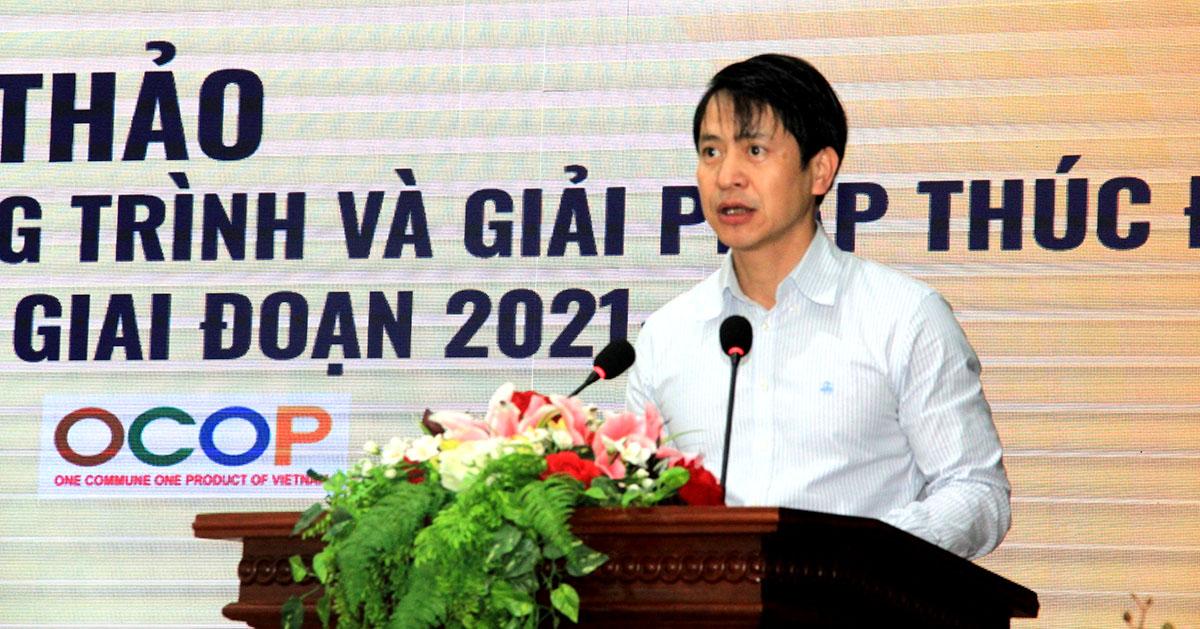
Mr. Nguyen Minh Tien - Chief of Office, Central New Rural Coordination Office.
Hello Mr. Nguyen Minh Tien
Reporter: Can you summarize the results of the One Commune One Product - OCOP program for the period 2018-2020? How do you rate the implementation progress in the last period?
Mr. Nguyen Minh Tien: Building rural areas is associated with the ultimate goal of improving the material and spiritual life of people in countryside. Therefore, rural economic development is a key task of the New countryside, also in association with the national socio-economic development strategy for the period 2011-2020. On that basis, the Prime Minister issued Decision No. 490/QD-TTg dated May 7, 2021 of approving the One Commune One Product Program for the 2018-2020 period (hereinafter the OCOP Program). This is a program of economic development in rural areas, focusing on promoting internal resources (products, creative intelligence, skills, traditional culture, etc.) income of rural people, contributing to building a sustainable new countryside.
After 3 years of implementation, the Program has become a key policy, has a strong spread, is deployed synchronously and widely, mobilizing the participation of the whole political system, all levels and sectors…becoming a priority solution in rural economic development, associated with new rural construction in all localities across the country.
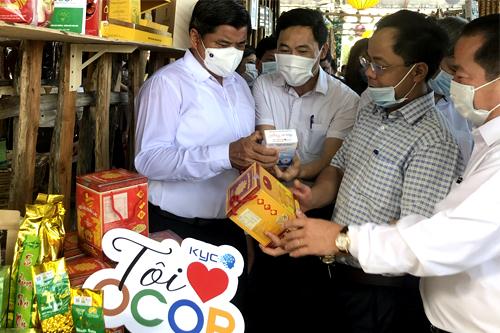
Up to now, the whole country has 61/63 provinces and cities organizing product evaluation and classification, 4,957 OCOP products have been recognized with 3 stars or more, of which 62.3% are 3-star products, 35.9% 4-star products and 1.3% 5-star potential products and 20 OCOP 5 products (which have been evaluated, classified and recognized by the Ministry of Agriculture and Rural Development in 2020). More than 2,711 participants, of which 37.6% are cooperatives, 27.7% are enterprises, 32% are production establishments, the rest are cooperative groups.
In addition to product results, the OCOP Program has had positive impacts on economic development in rural areas, namely:
- The OCOP program has an overall approach to arouse the potential of land, products, comparative advantages, especially regional cultural values to form multi-valued OCOP products, suitable for the increasing consumer demand of the market (besides food, nutrition, etc., there are aspects of culture, responsibility to the community, living environment). The program focuses on promoting the integrated multi-values of the agricultural sector (not only economic, but also social and environmental) under the policy of shifting from agricultural production to agricultural economy, shifting from supply (productivity, output) luxury demand (multiple value, product quality and sustainability). 393 OCOP value chains have been formed that operate effectively with the active role of cooperatives and businesses, many OCOP products effectively exploit the local raw material area, associated with geographical indications, such as: Shan Tuyet Hoang Su Phi of Ha Giang province; Tan Cuong tea of Thai Nguyen province; coffee in Son La province, rice in Soc Trang province and AnGiang province….
- The OCOP program has aroused the spirit of OCOP subjects in many aspects, specifically: (1) mindset about economic development to approach the market, focusing on the quality factor; standards/regulations, intellectual property, food safety as prescribed by law; developing products in terms of design and packaging associated with convenience, according to market requirements;... (2) enhancing the role of the subject with the community such as: creating jobs; protect and promote cultural values and local specialties; protecting the ecological environment and forming raw material areas…; (3) step by step forming OCOP products associated with multi-valued development goals: economy, society, culture, environment, etc.
- OCOP products meet food safety and quality standards and regulations; with perse and environmentally friendly designs and packaging, in accordance with the requirements of the market. After being recognized, OCOP products have added value, contributing to helping subjects increase production scale and revenue. A number of businesses and large supermarket groups have ordered and prioritized OCOP products to put into the distribution system. 354 entities have been connected and sold stable OCOP products on supermarket systems. The results of the evaluation of localities show that: 60.7% of OCOP subjects with 3 stars or more have an average revenue increase of 17.6%/year, the selling price of products after being officially recognized as OCOP average increase of 12.2%. In particular, the products that are requested to be assessed and ranked at the national level by the Central Government have all grown in revenue by 20-40%...
- The program promotes the direction of livelihood development in areas with special difficulties and disadvantaged groups (ethnic minorities, women), contributing to the implementation of the policy of "leaving no one behind".” (the percentage of OCOP subjects who are female accounts for 39%, higher than the percentage of women holding executive roles in enterprises in Vietnam (25%), especially in mountainous areas such as: North Central Coast with 50, 6%, the Central Highlands is 45.2% and the Northern mountainous region is 43.4%. The percentage of subjects who are ethnic minorities in disadvantaged areas and mountainous areas accounts for 17.1%, especially in localities, up to 37.3% in the northern mountainous area.
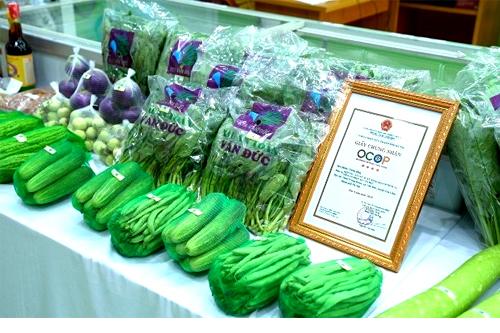
In general, the OCOP Program has received the attention and direction of the Central Government, local leaders, the participation of the whole political system from the central to local levels, many good models in innovative ways, effective implementation by localities, generating interest, response and strongly spreading to enterprises, cooperatives and production establishments in rural areas, making an important contribution to raising income, rural economic development in the recent period.
Reporter: After more than 3 years, what experiences and problems have been drawn for the next period, sir?
Mr. Nguyen Minh Tien: Besides the positive results mentioned above, the OCOP Program still has shortcomings and difficulties in the implementation process, specifically:
- The OCOP program is a new program, related to many fields, especially the requirement to arouse the potential and advantages of localities for rural economic development. Therefore, in the early stages of implementation, some localities are still confused in how to do it, identify advantages, potentials and production subjects, only focus on perfecting existing products, and have not yet paid attention to development. develop new products associated with raw material areas, especially traditional craft villages;
- The system of policies and mechanisms to support product developers is inconsistent and ineffective in coordinating support activities and resources, leading to confusion and difficulties for localities in the process of implementation products. Resources to implement the Program are limited, mainly integrated, while a number of support mechanisms have not been concretized, and have not focused on the development of value chains, raw material areas and facilities - processing processes. variables, ... leading to difficulties in the implementation process in some localities;
- The participation of the subjects in the OCOP Program has not really proactive, some contents of implementing the OCOP cycle of many actors are still heavily formal, lacking in connection with activities to improve the subject's capacity in production, product development and market expansion. school. Subjects have not paid due attention and lack of information on intellectual property, geographical indications, certification marks, etc. Innovation and creativity in product development, although having results, are still limited compared to with potential (the proportion of new products accounts for nearly 8% of the total number of recognized OCOP products);
- Trade promotion activities, although interested in implementing by many localities, are still fragmented, lacking in synchronization, and have not yet formed a trade promotion and advertising system, especially connected e-commerce. specializes in creating images, identifying OCOP products and changing consumers' perceptions… especially in the context of the impact of the covid 19 pandemic.
These are very important limitations and obstacles, serving as a basis for the Ministry of Agriculture and Rural Development to determine orientations, goals and solutions to submit to the Prime Minister for approval of the OCOP Program for the 2021-2025 period. In order to further improve implementation results, bring OCOP products into depth of quality, form "multi-valued" products, effectively exploit the domestic and export-oriented market.
Reporter: On that basis, how has the Program in the coming period inherited and promoted as well as overcome the problems of the previous phase? What are the specific goals of the project?
Mr. Nguyen Minh Tien:
- Firstly, the OCOP Program continues to be identified as a key program for rural economic development in the direction of promoting internal resources and adding value, an important solution and task in the implementation of the New countryside program, building new rural areas in the 2021-2025, depth, efficiency and sustainability.
- Second, inheriting the results and overcoming the problems of the previous period, entering the 2021-2025 period, the Program will focus on key tasks and solutions such as: (1) deploying facilities regulations, policies and solutions to improve product quality, capacity to organize production, processing and trade according to the OCOP product value chain associated with the material areas granted area codes; (2) prioritize the development of advantageous products in order to promote the regional identity, arouse the potential, creativity and pride of the people, and promote the community's values in the development of OCOP products. associated with new rural construction, especially the development of community-based tourism model in rural areas; (3) perfecting products according to standards, technical regulations, packaging, labels associated with traceability, local brands and trademarks; (4) strengthen digital transformation and promote product trade, especially e-commerce, to promote OCOP Vietnam brand in the domestic market and towards the export market.
- Third, from the overall goal of the Program is to develop OCOP products in order to arouse potentials and advantages in rural areas to increase people's incomes, contributing to further restructuring the agricultural sector, associated with the development of handicrafts, trades and rural services; promoting sustainable rural economy on the basis of increasing the application of digital transformation and circular economy, preserving cultural values, managing resources, conserving biopersity, landscape and agricultural environment villages, contributing to building new rural areas in depth, efficiency and sustainability in localities. The OCOP program in the coming period will focus on the following specific objectives: (1) strive to have at least 10,000 OCOP products recognized with 3 stars or more, of which at least about 400-500 products are available. OCOP products achieve 5 stars; (2) the program will focus on giving priority to supporting cooperatives and enterprises (striving at least 40% of OCOP subjects are cooperatives and 30% of subjects are enterprises); (3) developing OCOP products along the value chain in the direction of a circular economy, green OCOP (at least 30% of OCOP actors have built a value chain in the direction of a circular economy, green OCOP associated with raw materials with priority given to evaluated and graded OCOP products); (4) Strongly develop typical products, craft villages, associated with the role of women, ethnic minorities (at least 50% of traditional craft villages have OCOP products and at least 40% of OCOP subjects are female executives of production and business activities); (5) Promoting trade promotion and persifying sales forms, forming typical OCOP product consumption channels associated with brands in the domestic market and aiming for export (at least 50% OCOP subjects participate in modern sales channels systems of supermarkets, convenience stores; e-commerce trading; ...); strive to have 01 point of introduction and sale of products in each province and city. OCOP; international cooperation forum for each village, one product is held at least once a year).
Reporter: In the previous period, we mentioned a lot about the role of grassroots level (commune and village level) that has not been promoted. Specifically, how is this phase expected to be organized at the grassroots level?
Mr. Nguyen Minh Tien: In the past period, some localities still have many confusions in the implementation process, especially promoting the role of commune level in identifying advantages, potentials and exploiting strengths of communes. local material areas, craft villages and traditional craft villages. Therefore, in the period 2021-2025, the Program will continue to improve the organizational apparatus for the implementation of the OCOP Program at all levels from the central to local levels (province, district, commune) in the direction of: continuing to inherit, on the basis of the apparatus built for the period 2018-2020, which assigns responsibilities to the Commune People's Committee in: (1) assigning officers in charge of implementing the Commune-level OCOP Program; (2) Participate in the implementation of the OCOP Program at the commune level as assigned by the People's Committee of the district and province; proactively review potential products and advantages in the area and guide organizations and inpiduals participating in the Program; (3) Actively propagate to economic organizations and people about the meaning and support policies of the OCOP Program, actively support and advise economic organizations to prepare documents and documents. participate in the OCOP Program.
Reporter: Another issue, how is the 6th OCOP Product Group defined to develop during this period? What should be noted with this product group to ensure sustainable development?
Mr. Nguyen Minh Tien: In the context that agricultural land area continues to shrink, it is necessary to persify production, business and service industries, so tourism development is a new direction, contributing to development, promote the advantages and distinctive values of agriculture, rural areas and farmers; at the same time in accordance with the orientation of shifting from agricultural production to agricultural economy in the direction of "multi-sector integration". Therefore, rural tourism development is identified as one of the fundamental solutions, the driving force to promote sustainable new rural construction, and at the same time, the new countryside is the foundation to support and create favorable conditions for rural gain, persified and sustainable development of tourism. Especially in the next few years due to the influence of the Covid-19 pandemic, the possibility that tourists tend to be mainly domestic tourism, ensure safety, towards prudence and convalescence, agricultural tourism will be the main trend. The village will have a lot of potential and room for development, in the immediate future, welcome domestic and international tourists living and working in Vietnam.
With perse and rich potentials, rural tourism has developed in many localities, according to preliminary statistics from 37 provinces/cities, there are 73 tourist routes that lead visitors to tourist destinations in countryside, there are 365 rural tourist spots. Carrying out the tasks assigned by the leadership of the Ministry, the Central New Rural Coordination Office is drafting a program on rural tourism development in new rural construction in the 2021-2025 period to submit to the Prime Minister for approval. is a key thematic program of the National Target Program on building new rural areas.
On that basis, the OCOP Program will focus on developing community-based tourism products and services and tourist attractions, aiming to build persified, unique and value-added tourism products; contributing to the development and formation of specific tourism products of each locality, always innovating for the destination and combining agriculture in tourism to promote and increase the value of agricultural products. industry, traditional craft village products, local OCOP products.
Thank you!
Tin mới hơn

Giải đáp 6 thắc mắc phổ biến nhất về tái chứng nhận OCOP, nâng hạng sao, chọn VietGAP hay GlobalGAP và chiến lược marketing 0 đồng hiệu quả.
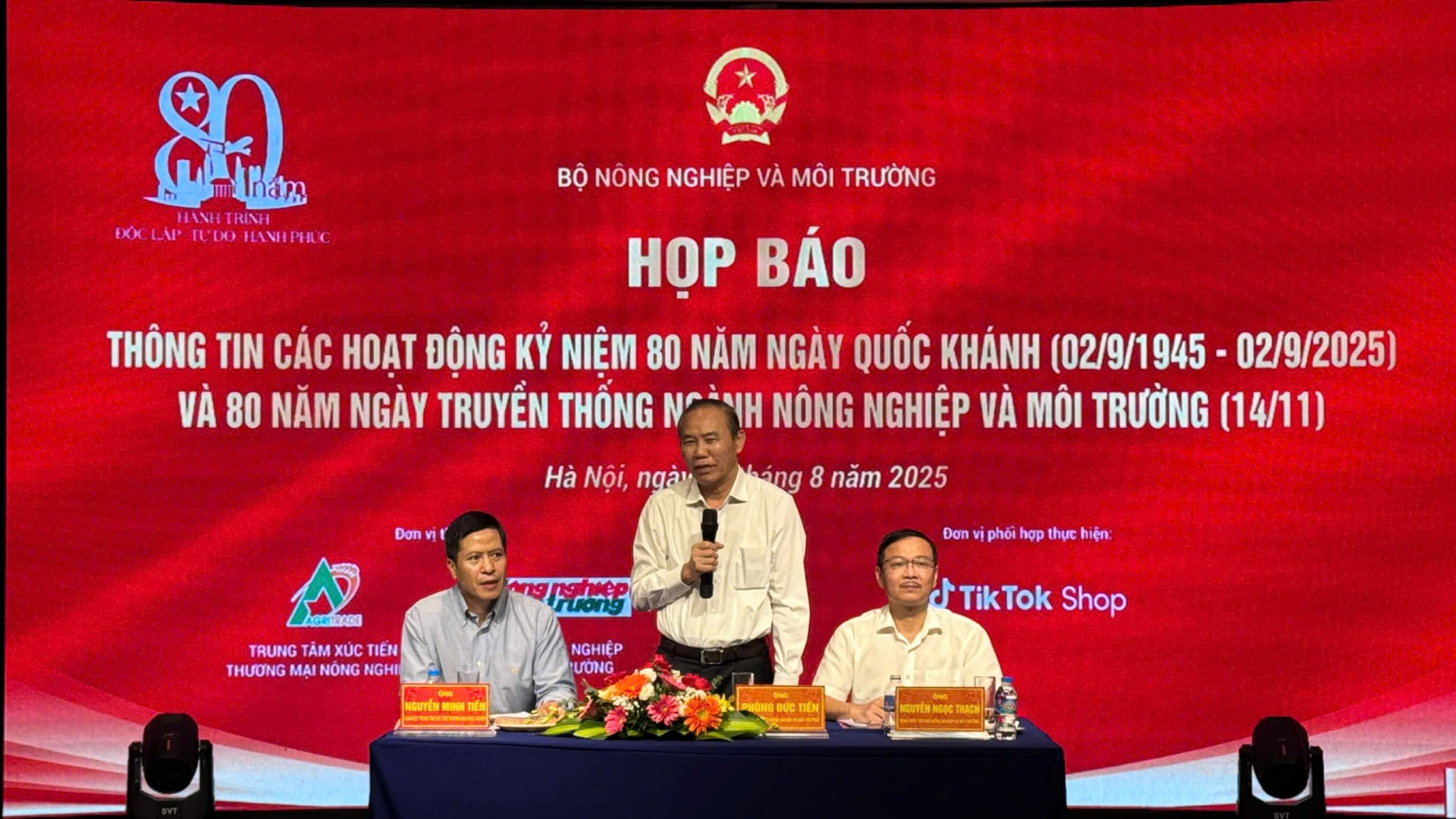
OVN - The agriculture and environment sector's booth at the 80-year Achievements Exhibition offered a multi-dimensional experience, honouring accomplishments and asserting its position in the green era.
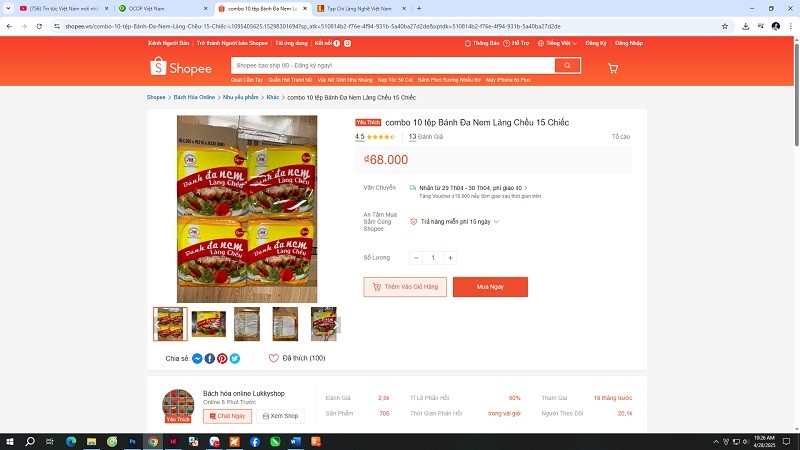
OVN - Hà Nam là địa phương có nhiều làng nghề, làng nghề truyền thống với các sản phẩm có tính đặc trưng, mang đậm văn hóa địa phương. Không nằm ngoài xu thế chuyển đổi số, thời gian qua, các làng nghề, chủ sở hữu sản phẩm OCOP trên địa bàn tỉnh đã đẩy mạnh phát triển thương mại điện tử (TMĐT), mở ra nhiều cơ hội cho sản phẩm địa phương.
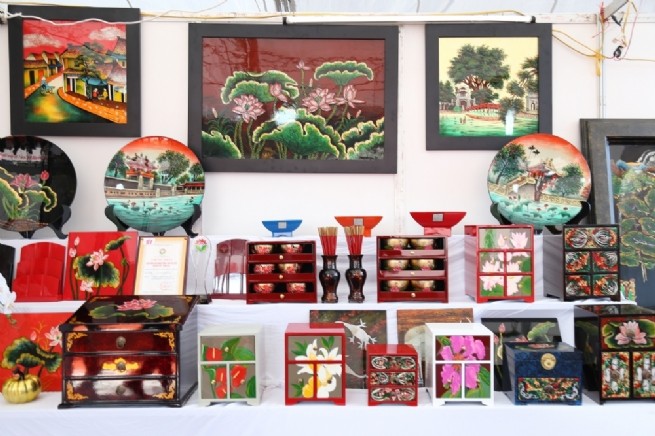
OVN - Many Ha Thai lacquer products (Duyen Thai commune, Thuong Tin district, Hanoi) are ranked OCOP (One Commune One Product Program) 3 stars, 4 stars, with the potential to be upgraded to 5 stars. Typically, 2 products: Mother-of-pearl inlaid lacquer boxes and horn-mounted lacquer boxes of An Huy Production and Trading Service Joint Stock Company are ranked OCOP 4 stars by Hanoi People’s Committee. Ha Thai’s OCOP-standard products are increasingly standing firm in the domestic and international markets.

OVN - Dai Yem Waterfall, Muong Sang Ward, Moc Chau Town (Son La Province), in Thai is called “Sai Peng” which means “thread of love”. The stream where the waterfall flows down is called Ho Hen stream. The waterfall pours white, creating a scene that is both majestic and poetic, peaceful and relaxing. With beautiful natural scenery associated with the romantic love story of a couple.
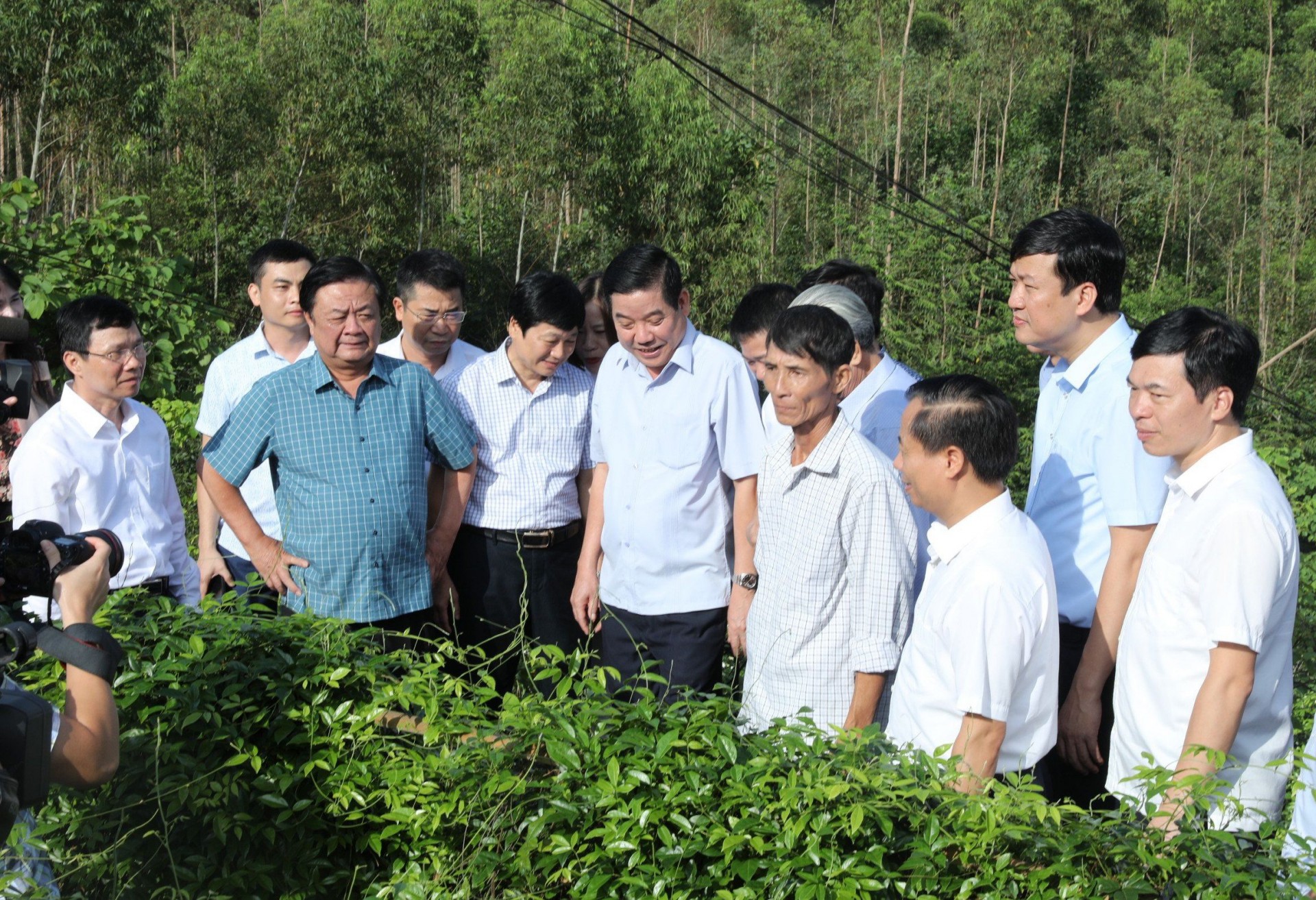
OVN - Nestled among the green midland hills of Tan Yen district, Bac Giang province, Danh mountain ginseng is gradually asserting its position, not only as a precious medicinal plant but also as a symbol of sustainable development of the locality. With its precious medicinal value, associated with a long history and culture, and outstanding economic prospects, Danh mountain ginseng deserves to be called the “green gold” of Bac Giang land.
Tin khác
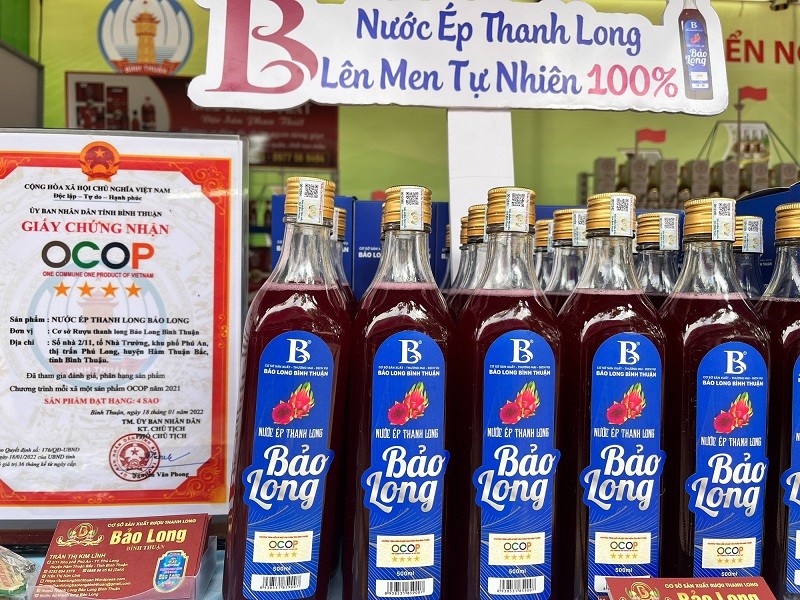
OVN - The Department of Industry and Trade of Binh Thuan province continues to support dragon fruit processing and exporting enterprises in promoting, finding partners, and expanding export markets.
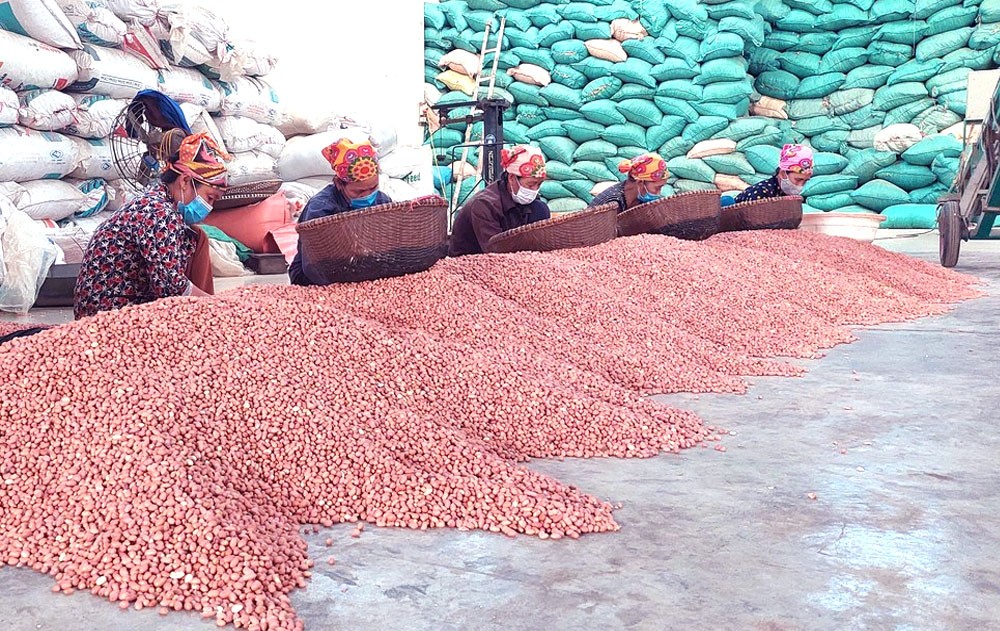
OVN - For many years, peanut trees have been an important tree in Dien Chau, Nghe An. Spring passes here, the peanut fields are covered with white plastic with millions of peanut sprouts reaching for the sun. Every family grows peanuts, when the season comes, they call each other to buy sell peanuts.
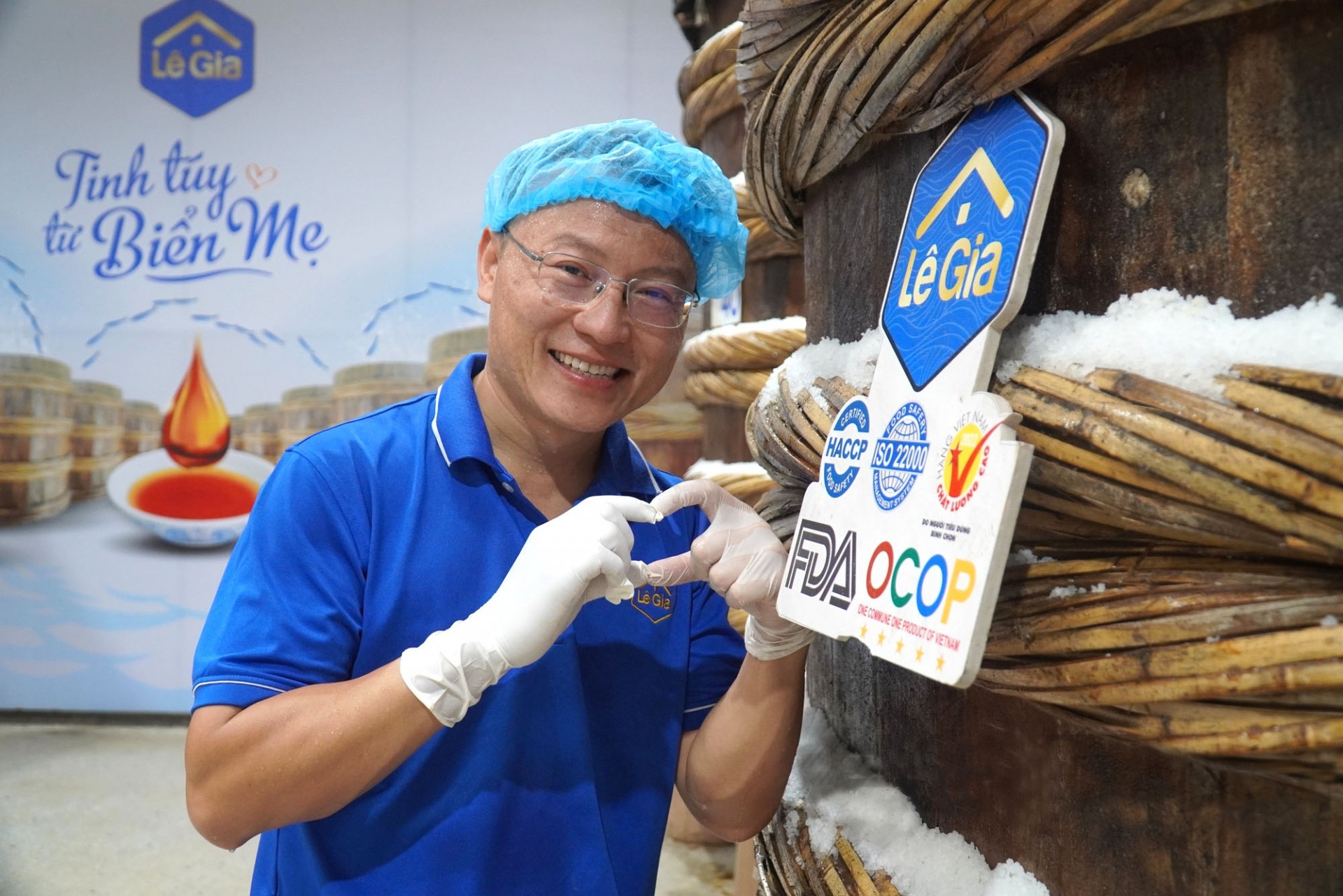
OVN - Each Thanh agricultural product that has achieved OCOP certification in particular has been writing a journey imbued with its own strategic imprint, identity and value on the path of “going abroad”....
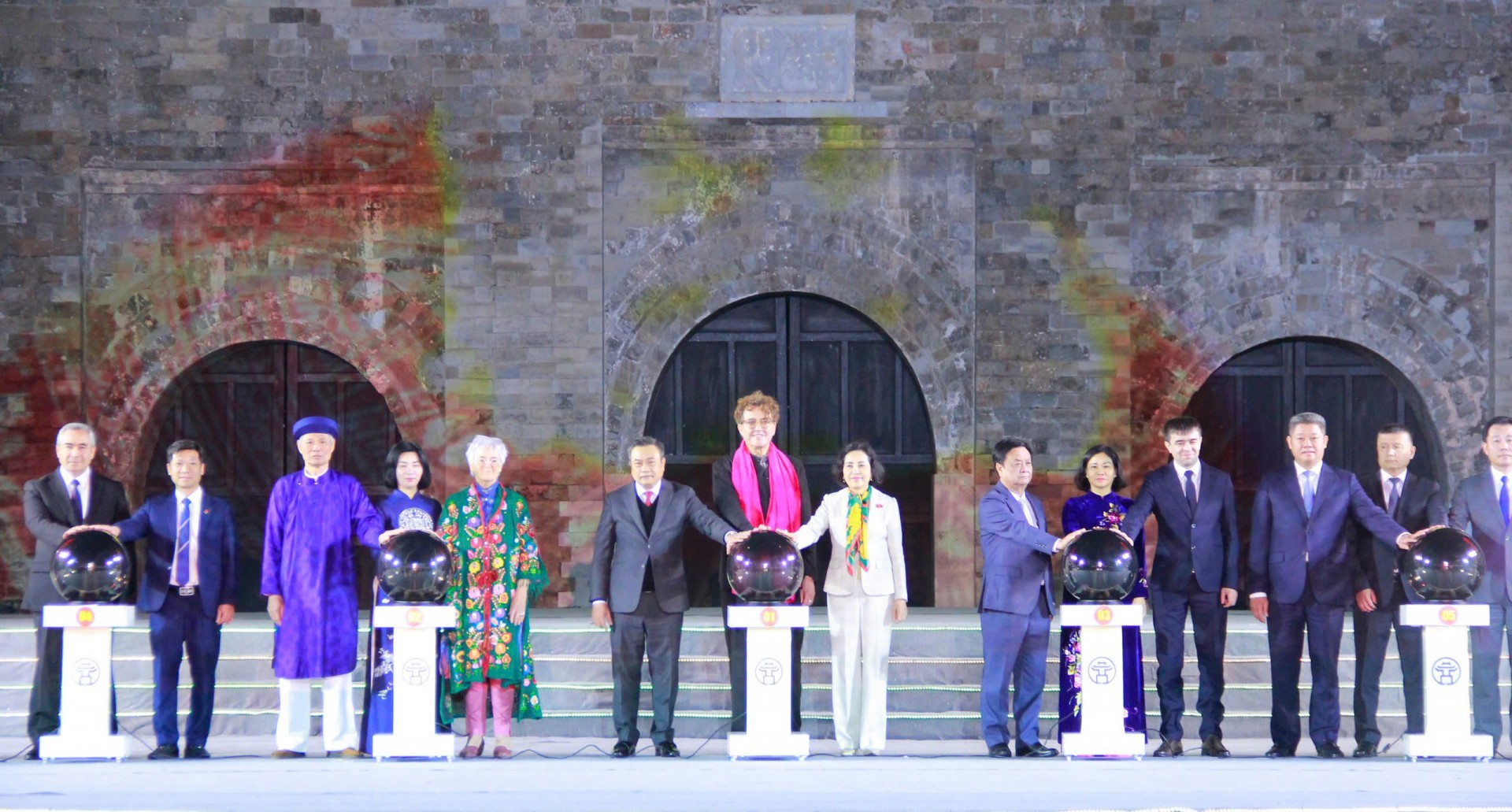
OVN - On the evening of February 14, at the Imperial Citadel of Thang Long (Hanoi), the ceremony to welcome Bat Trang ceramics and Van Phuc silk weaving villages as members of the World Network of Creative Craft Cities was held. The event also included activities to display, demonstrate, and create Hanoi handicraft products in 2025.
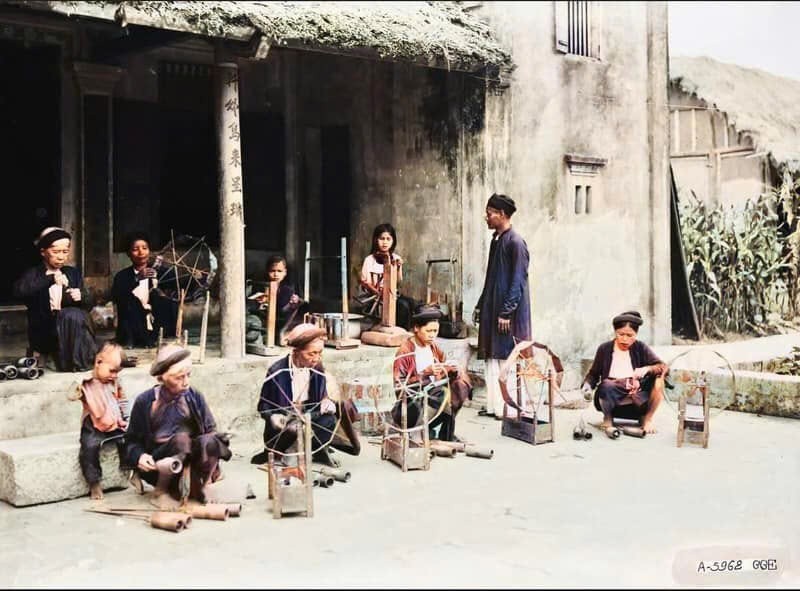
OVN - Thang Long, Hanoi is the largest cultural center of the country with tangible and intangible cultural relics, a land of "Spiritual land and talented people". Hanoi is poetically beautiful, not only because of the ancient features of 36 streets but also because of the traditional craft villages that have been recorded in history books and poetry.
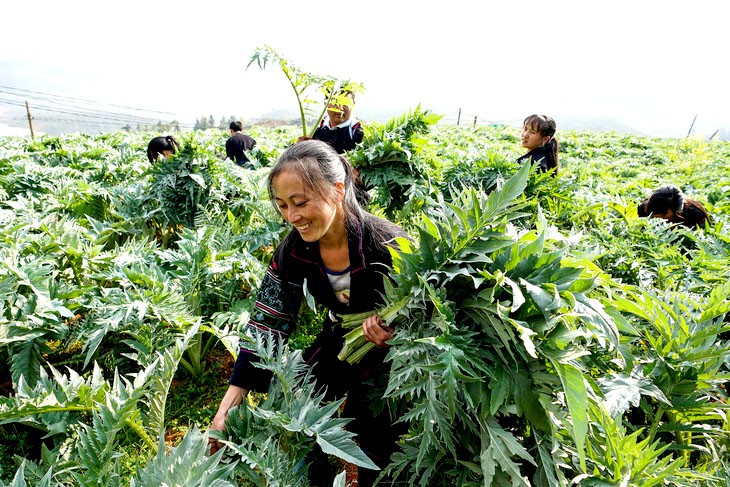
OVN - On November 5, the Ministry of Agriculture and Rural Development held a meeting of the Council to evaluate and classify products of the Central-level One Commune One Product (OCOP) Program in 2024. The Council reviewed and recognized 4 new 5-star OCOP products, of which Lao Cai province is honored to have 2 products recognized: Sa Pa artichoke extract and mist tea Sa Pa artichoke.
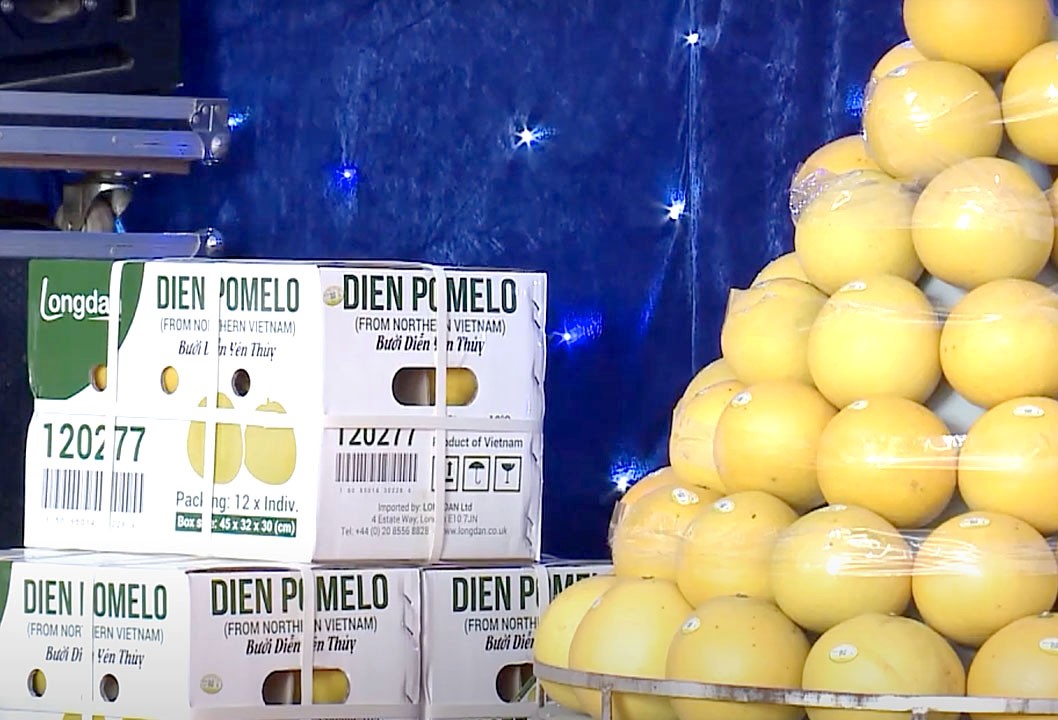
OVN - In 2018, Hoa Binh province began implementing the OCOP Program from 2018. After 7 years of implementation, 158 OCOP products have been certified with 3 stars or higher. Thanks to the implementation of this program, many communes have escaped poverty.
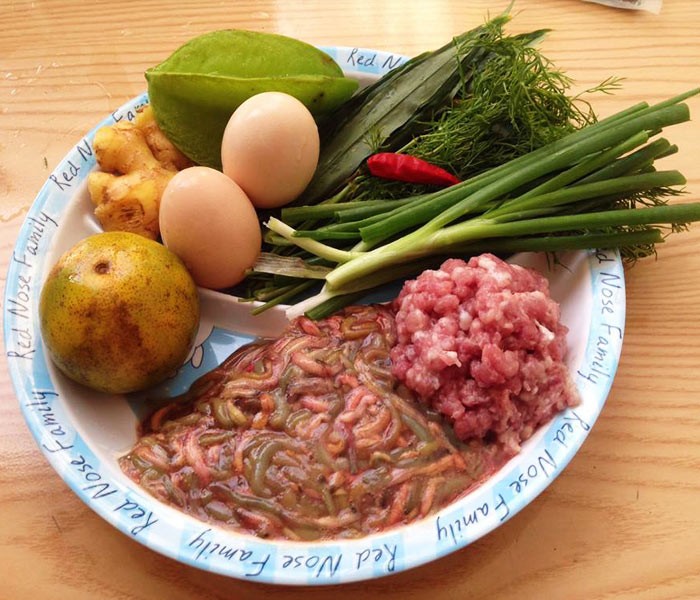
OVN - From the “heavenly” gift of raw materials, worm processing facilities in Nghi Xuan (Ha Tinh) have invested in technology and processed them into products aiming to achieve OCOP standard.
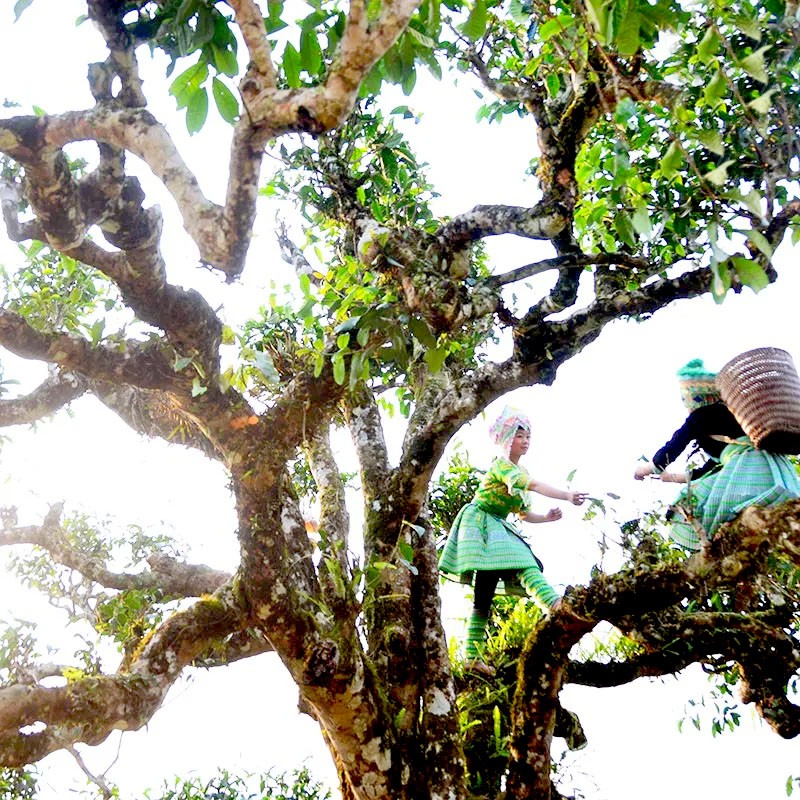
OVN - According to an announcement from the World Agricultural Products Selection Association in France, Lao Cai has 3 tea products made from the leaves of the ancient Hoang Lien Son Shan Tuyet tea tree in Sa Pa (Lao Cai) that have won awards. world tea, with 2 Bronze awards and 1 Impressive award.
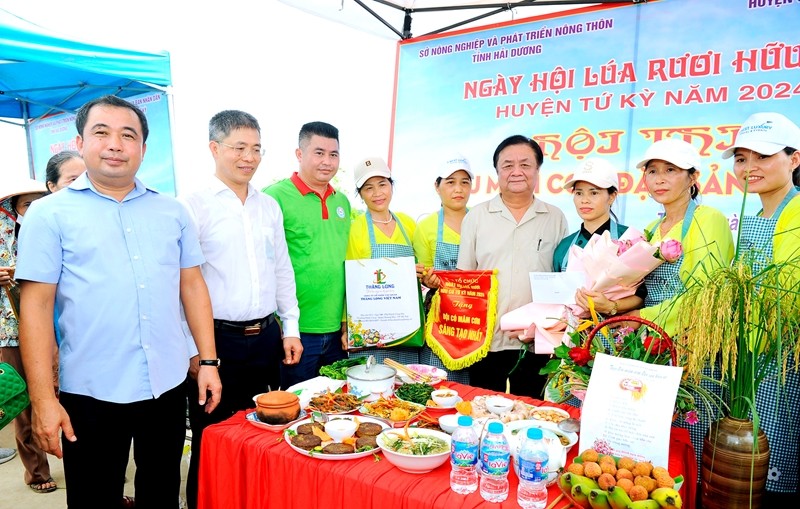
OVN - Earthworms, also known as "Earth Dragons", are soft-bodied animals that live in brackish water or mixed freshwater areas. Some other small species of the worm family can even live in the marine environment. Houseworms often appear in the Northern Delta and North Central provinces. Houseworms often appear in the areas of Tu Ky, Kinh Mon, Thanh Ha,... in Hai Duong province.
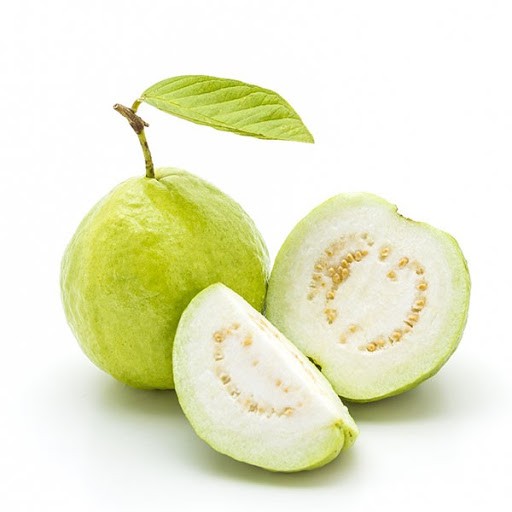
OVN - Implementing the Project "Building a safe fruit tree production model in the rice land conversion area of Ha Nam province for the period 2021 - 2025", Thanh Huong commune (Thanh Liem district) has planned and built a Dai Pear guava growing area. Loan has an area of 5 hectares in Danh Noi village. Here, Danh Noi Clean Agricultural Cooperative (Cooperative) was established and organized guava production meeting VietGAP standards. The guava and pear products in the model were built with traceability labels and QR codes by Danh Noi Clean Agricultural Cooperative. In particular, in 2023, local Taiwanese guava and pear products will be recognized as OCOP (One Commune One Product Program),
rated 3 stars.
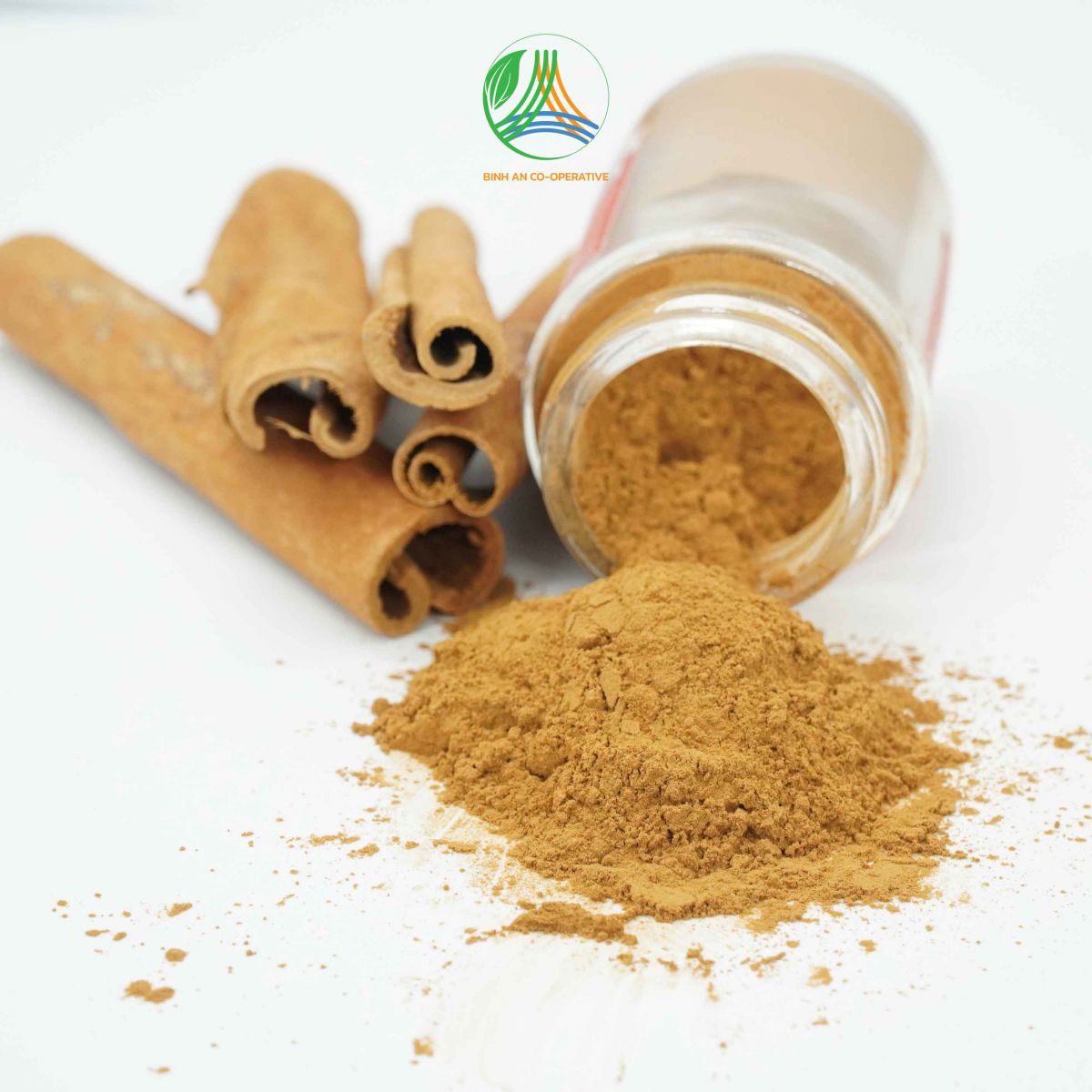
OVN - Associated with the life and livelihood of the Dao ethnic group in Van Yen district (Yen Bai province), cinnamon has helped people rise out of poverty and improve their quality of life. In particular, the cultivation model according to international organic standards is be-ing initially applied by Binh An
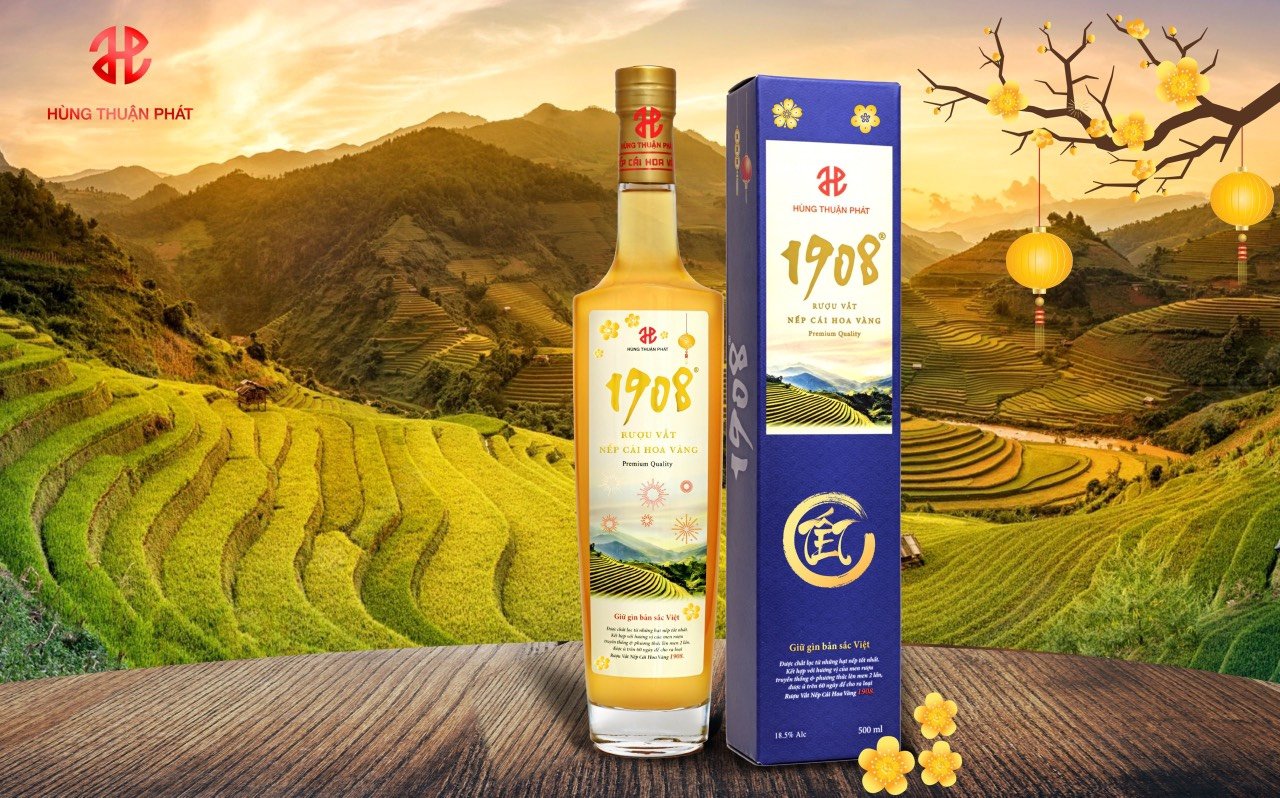
OVN - Famous as a typical product, attracting the attention and love of consumers everywhere in and outside the province, wine products from Hung Thuan Phat Trading - Service - Production Co., Ltd also received many positive reviews from the appraisal council of Binh Duong Provincial People's Committee, notabl

OVN - Not only is a crop suitable for the soil and climate conditions of the Northern mountainous region, red turmeric is also a potential agricultural product to help many businesses in Bac Kan province rise to affirm their brand. , creating a close cooperation relationship with farmers, bringing stable income

